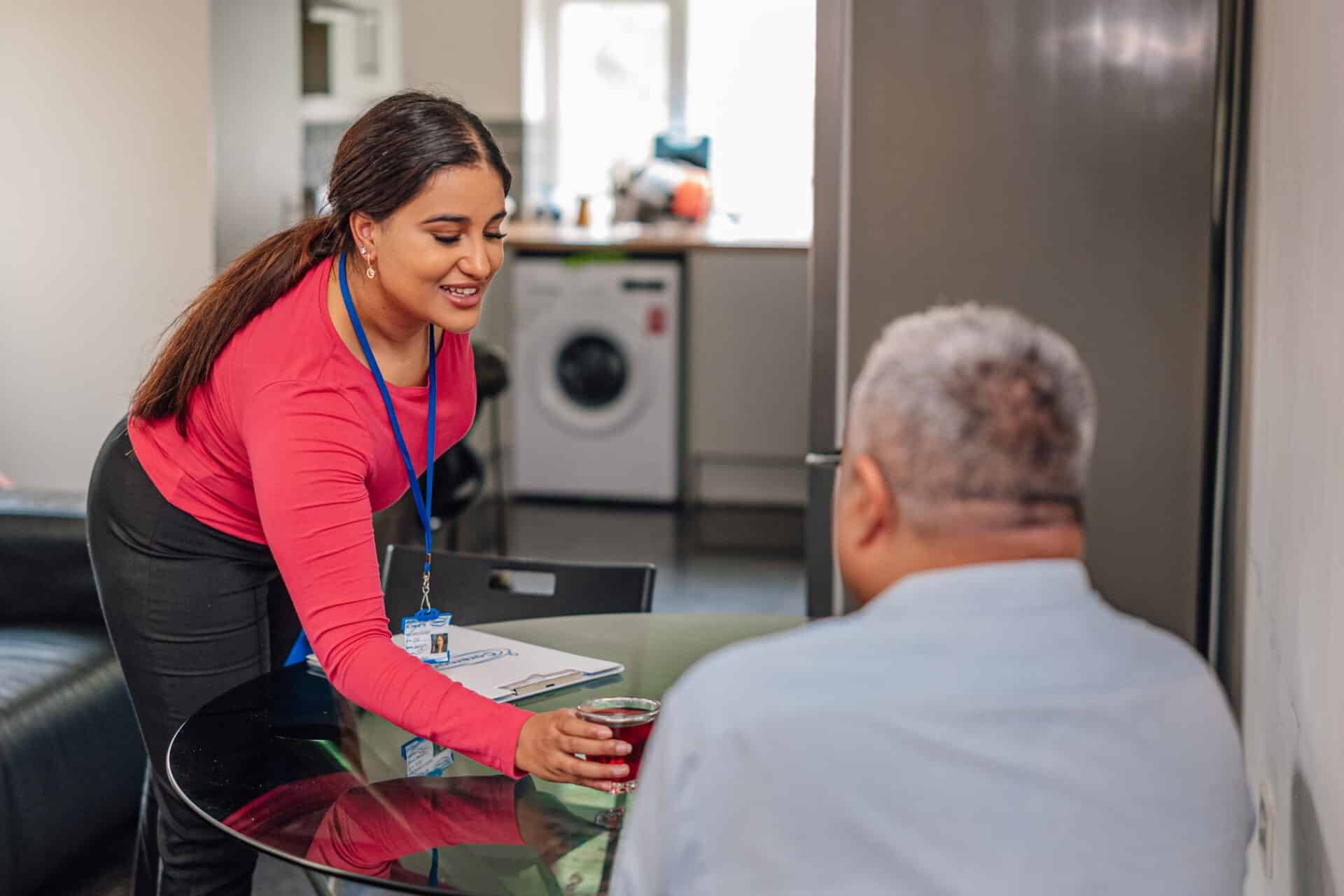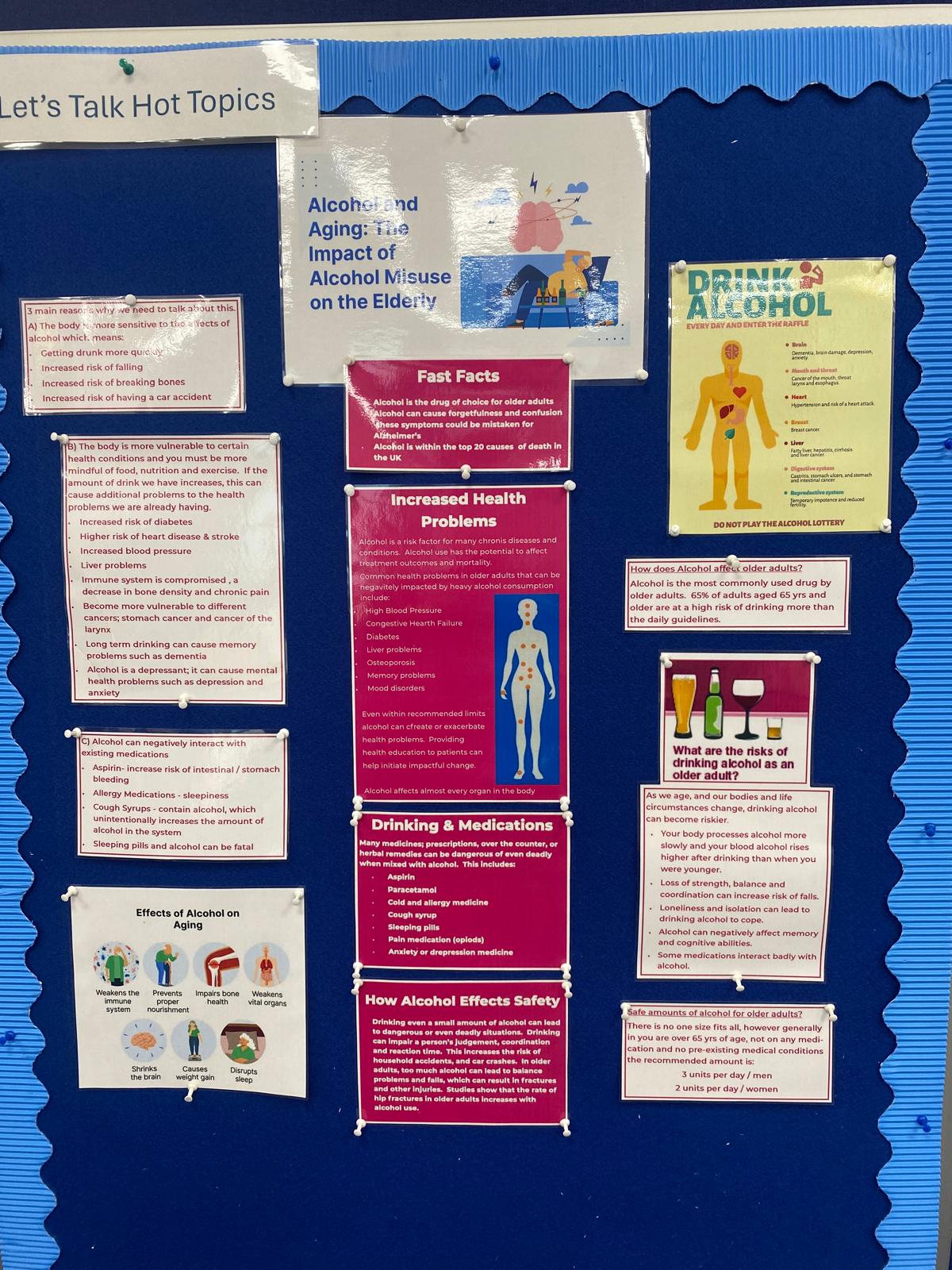October’s Hot Topic: Alcohol and Ageing – Helping Your Parents/Relatives Navigate the Risks

As our parents and relatives grow older, subtle changes in their habits or behaviour can raise concern, especially when alcohol becomes part of the picture. A glass of wine in the evening may seem harmless, but alcohol misuse among older adults is increasingly common and can have serious effects on health, safety, and wellbeing. In this article we discuss the pitfalls of alcohol and ageing.
If you’ve started to worry that your parent or relative may be drinking too much, understanding why it happens and how to help is the first step toward positive change.
Why Alcohol and Ageing?
Because for many older people, drinking more isn’t about recklessness – it’s about coping. Some common reasons include:
- Depression or anxiety: Emotional struggles often go unnoticed in older adults, and alcohol may seem like an easy way to cope.
- Loneliness or loss: The death of a spouse or close friend can trigger grief and isolation, leading some to turn to alcohol for comfort.
- Retirement and boredom: Losing a sense of routine or purpose can make evenings feel empty.
- Chronic pain or sleep problems: Alcohol may be used as a form of self-medication, even though it can worsen these issues.
Warning Signs to Look Out For
Because aging naturally changes mood, memory, and balance, alcohol misuse can be hard to spot. Warning signs include:
- Drinking more frequently or in larger amounts.
- Hiding alcohol or drinking alone.
- Mood swings, confusion, or irritability.
- Unexplained bruises or frequent falls.
- Neglecting meals, hygiene, or home upkeep.
- Increased drinking following the loss of a spouse.
If you’ve noticed a few of these changes, it may be time to start a gentle, caring conversation

Health Risks of Alcohol and Ageing
Therefore, as the body ages, it processes alcohol less efficiently, meaning even small amounts can have a stronger effect. Moreover, for older adults, this can lead to:
- Increased anxiety or depression
- Higher risk of falls and injuries
- Worsening of long-term health conditions
- Dangerous medication interactions
- Memory problems or confusion
- Poor nutrition and sleep
How to Support an Aging Parent/Relative
Starting the conversation isn’t easy, but compassion goes a long way.
- Talk with empathy: Focus on what you’ve noticed and how you feel, not on blame or criticism.
- Encourage a GP visit: A health check can uncover any alcohol-related issues or medication concerns.
- Offer alternatives: Suggest social activities, hobbies, or local groups that can reduce isolation.
- Be patient: Change takes time — what matters most is that your parent/relative knows you care and are there to help.
We’re Here to Help – Caremark Gloucester & Stroud
At Caremark Gloucester & Stroud, we understand how difficult it can be to watch someone you love struggle. Our compassionate care teams can support your older relative at home – helping them stay safe, healthy, and connected while addressing the challenges that may contribute to alcohol misuse.
Whether your loved one needs companionship, daily care, or help managing routines and wellbeing, we’re here to help.
Finally, why not get in touch with Caremark Gloucester & Stroud today to learn how we can support you and your family? Together, we can help your loved one live safely, comfortably, and with dignity at home.